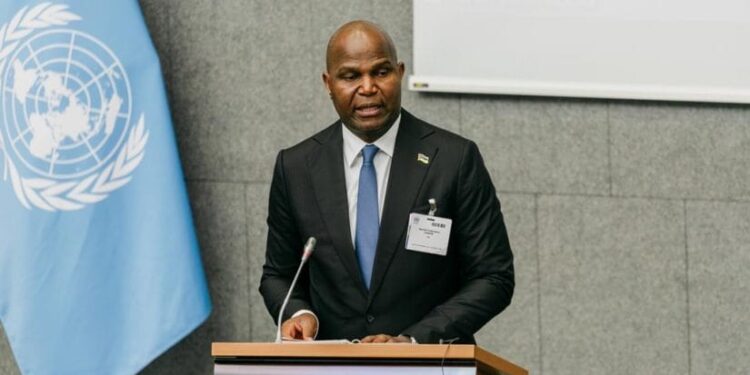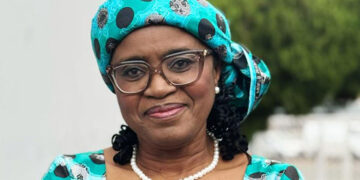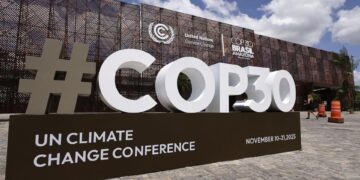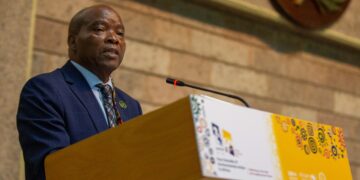Mozambique has begun integrating artificial intelligence (AI) into its national early warning infrastructure in an effort to enhance climate resilience and disaster preparedness, as the country continues to face increasingly frequent and severe weather events linked to climate change.
Speaking at a high-level panel in Geneva on the Early Warnings for All initiative, President Daniel Chapo outlined the government’s strategy to modernise meteorological and hydrological services. The approach includes digitising data systems and using AI-powered tools to improve the accuracy and timeliness of forecasts.
Chapo said the objective is to develop automated systems that collect and disseminate climate data in real time across Mozambique and neighbouring countries. These systems are intended to improve the detection of climate anomalies and enable more precise predictions of the path and intensity of extreme weather events such as tropical cyclones and floods. The government has stated that the aim is to translate scientific data into timely, understandable alerts that reach all sections of the population.
Mozambique’s initiative is being supported by the Systematic Observations Financing Facility (SOFF), a multi-agency funding mechanism aimed at strengthening observational capacity in countries with limited meteorological infrastructure. According to the World Meteorological Organization, SOFF supports the deployment of ground-based observation systems and the use of AI to improve forecasting accuracy in regions with historically sparse data coverage.
The country’s renewed emphasis on early warning systems follows a difficult rainy season in 2024–2025, during which it was affected by three cyclones—Chido, Dikeledi and Jude—that caused significant damage in northern provinces already facing humanitarian challenges. In this context, the integration of AI and digital tools is viewed as part of a broader effort to reduce disaster risk and improve national preparedness.
However, challenges persist. President Chapo noted that limited access to climate finance continues to constrain Mozambique’s ability to scale up its resilience-building efforts. He called for greater international support, including public–private partnerships and increased funding from development finance institutions, arguing that early warning investments yield long-term savings in disaster response and reconstruction.
The government’s framing of the initiative reflects a wider trend among African countries to strengthen climate adaptation through the adoption of advanced technologies. While critics have cautioned against overreliance on digital solutions in areas with limited infrastructure, proponents argue that investments in AI can enhance the reach and responsiveness of early warning systems, particularly in rural and underserved communities.
Mozambique’s approach aligns with international climate goals under the Paris Agreement, which calls for strengthening adaptive capacity and reducing vulnerability to climate-related hazards. It also echoes broader African Union ambitions to foster regional data-sharing frameworks and cooperative climate action.
Observers have pointed out that the effectiveness of early warning systems will ultimately depend on sustained investment, institutional capacity, and the inclusivity of alert dissemination. Ensuring that marginalised and remote communities receive timely warnings remains a critical concern, particularly where digital access is uneven.
As Mozambique advances its early warning infrastructure, the initiative may offer insights for other climate-vulnerable states grappling with similar challenges. Whether AI-enhanced systems can deliver equitable and effective protection in the long term remains to be seen, but the country’s decision to pursue this path marks a notable step in its climate risk governance strategy.















